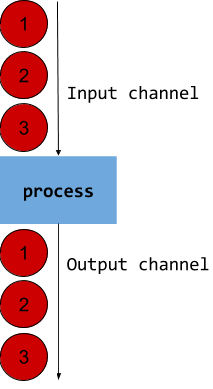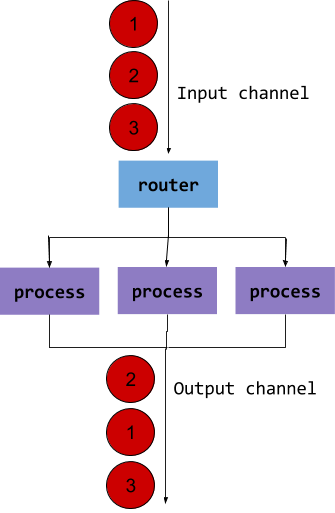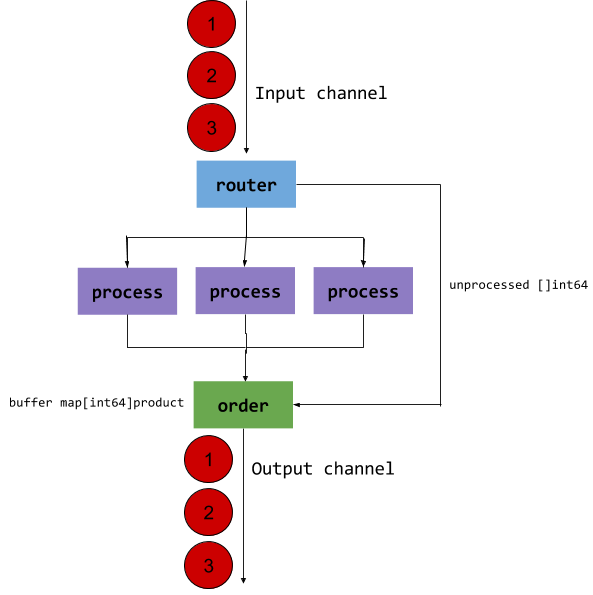ParSeq
The parseq package provides a simple interface for processing a stream in parallel, with configurable level of parallelism, while still outputting a sequential stream that respects the order of input.
Why fork it?
This is a fork of https://github.com/marianogappa/parseq which provides capabilities to provide different process functions for each processing go routine started by parseq.
WAT?
In 99% of the cases, you read messages from a channel and process them sequentially. This is fine. Note that if the channel is unbuffered, your goroutine blocks the next message for the length of the time it takes to process each message. If processing is a lengthy operation, it doesn't matter if the channel is buffered or not, except for the initial period.
for msg := range channel {
process(msg)
}If this throttling is problematic, you need to parallelise. When you parallelise, results can come out of order. This can be a problem (or not):
outputChannel := make(chan product)
workers := make(chan request, 3)
for i := 1; i <= 3; i++ {
go newWorker(workers, outputChannel)
}
for msg := range inputChannel {
workers <- msg
}ParSeq goes just a little further from that model: it saves the order on the input side and holds a buffer on the output side to preserver order:
Should I use this?
Probably not! Don't be clever. Only use it if:
- the rate of input is higher than the rate of output on the system (i.e. it queues up)
- the processing of input can be parallelised, and overall throughput increases by doing so
- the order of output of the system needs to respect order of input
Usage
package main
import (
"fmt"
"time"
"github.com/fholzer/parseq"
)
func main() {
processGenerator := func(i int) (parseq.ProcessFunc, error) {
// i is the id of the processor, range: 0 - <parallelism>
proc := &Processor{
otherPrivateData: i,
}
return proc.Process, nil
}
p, err := parseq.New(5, processGenerator) // 5 goroutines using the process function
if err != nil {
panic(err)
}
go p.Start()
go makeRequests(p)
for out := range p.Output { // after initial 1s, requests output every ~200ms
fmt.Print(out.(int), ".") // and output respects input order
}
}
func makeRequests(p *parseq.ParSeq) {
counter := 666
for {
p.Input <- counter // this simulates an incoming request
time.Sleep(200 * time.Millisecond) // requests come every 200ms
counter++
}
}
type Processor struct {
otherPrivateData int
}
func (p *Processor) Process(value interface{}) interface{} {
// access go routine-private data
time.Sleep(time.Duration(p.otherPrivateData) * time.Second) // processing a request takes 1s
return value
}

